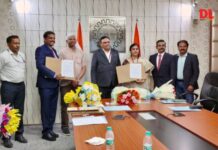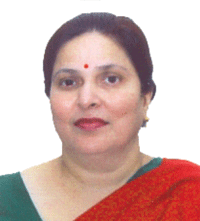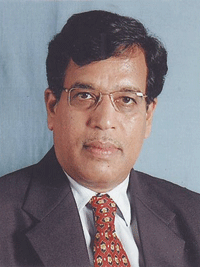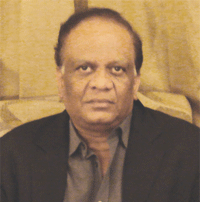
 Gautam Goradia
Gautam Goradia
EO, YoKnowledge.com
“YoKnowledge is based on the philosophy that every student has his own question bank, which may be packed in textbook lessons or written in notebooks or queried by teachers and parents”
How did Hayagriva come up with the idea of having a dedicated product for assessment as YoKnowledge.com?
Although I don’t come from an IT background, I am good at writing software applications. I had done few applications for our family textile company which were very successful. So I thought of diversifying. It has been a long journey since I started out in 2001. We launched our first product in 2008 and have four to five new products line up in the next six months.
The idea for YoKnowledge came to me from my wife, who is an avid quizzer and a consultant with schools. As she had difficulty in frequentlyupdating the question bank for quizes, I made a software for her where she could keep a bank of questions in different folders as per age of contestants or the difficulty level. She could also put images, video or audio files in them. Those days in 1994-95 many quiz-based shows such as Kaun Banega Crorepati had already come in market. So then I decided to make this application commercial. YoKnowledge is based on the philosophy that every student has her/his own question bank, which may be packed in the lessons of our textbooks or written in notebooks or queried by teachers and parents. The product personalises learning as YO means ‘Your Own’. Now we also have YoQuestions Pro, an authoring tool, and YoQuestions Lite. It is a desktop based product and hence does not require Internet except when you want to download questions.
In what ways does YoKnowledge empower the teacher with new age tools and technology use in classrooms?
Every teacher loves collaborative learning but they don’t have the tools to do it. The authoring tool gave them the power to go beyond textbooks. India is yet to integrate the system of collaborative learning in its education system in a big way.
YoKnowledge goes beyond regular testing for students; it has in-built tools for teachers responsible for bringing collaborative learning into the classrooms with printable worksheets, flash cards, snap cards etc. The teacher is an intuitive author and the tool liberates her from the book publisher and empowers her to ask her own question. The software also empowers her to create worksheets, chose topics within a chapter, and format it as MCQs. You can also add a video clip along with the question, which can then be stored and shared later with other teachers and students. The package has 6,000 questions for offline study and for online mode, practice and test sessions are available on our website. A study done in the US found that repeated assessment gives better results than repeated studying.
How do you keep up with competition?
Currently we are not active in the mainstream competition. Our philosophy is unique and the simplicity of our product is its USP. The advatage derived throgh its offline/online mode gives our products an edge over others in the market.
Which markets are you looking forward to for launching your products?
We have started out in India and are in close contact with several companies in the Middle East, the UK, US and many African countries as well. Although the market is huge in India and there are many companies doing testing, ours is the only company which gives more than one source of content and helps build a community. We aim to cater to every examination system in India, including all professional examinations such as banking, etc, in the next three years. We also want to expand to become a 15-million-dollar company in the coming three to four years. As English is the most preferred language across the globe, we also plan to launch our language improvement solutions as the next product line.










 Savita Datta,
Savita Datta,
 Gautam Goradia
Gautam Goradia Dr. Arun D Sawant
Dr. Arun D Sawant









